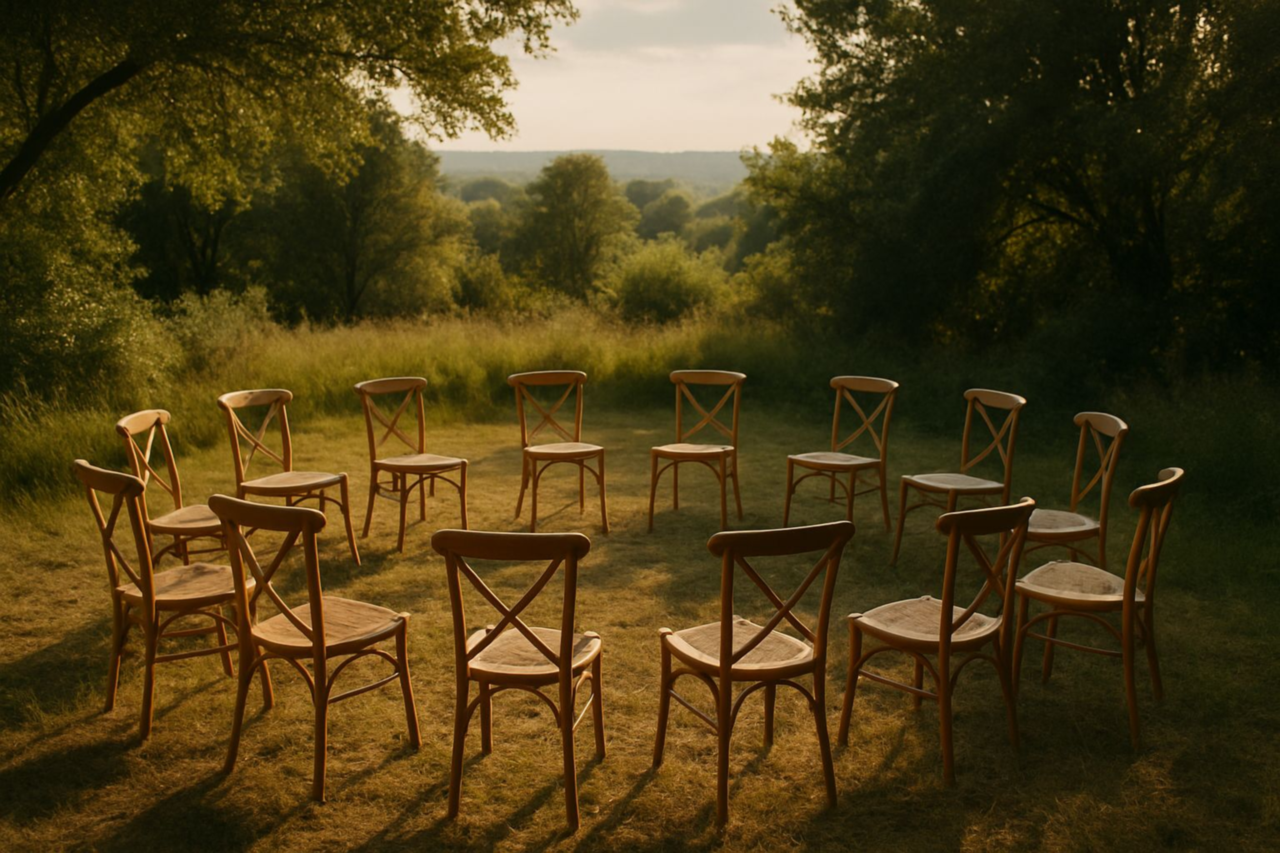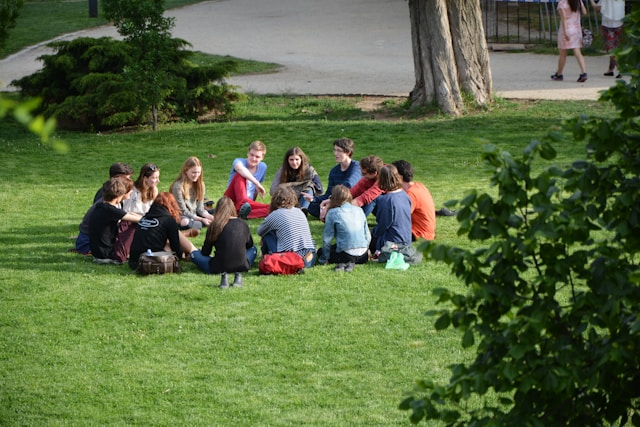Cohering Community
Holding Space for Emergence: Why the Future of Leadership Belongs to Facilitators and Coaches
(Note: This article was crafted with the assistance of an AI)
If you’ve spent time in the world of facilitation or coaching, you’ve probably noticed a paradox.
On the one hand, these roles are celebrated for being more relational, more people-centered, and more supportive than traditional management. Facilitators hold the room. Coaches hold individuals accountable. Both help people move forward.
And yet… so often these practices still carry the subtle weight of control.
Facilitators feel pressure to “deliver outcomes” to clients.
Coaches feel pressure to “produce breakthroughs” for individuals.
Both can become focused on managing the process, rather than trusting emergence.
The danger is that in trying to manage, we may inadvertently close down the very possibility we set out to create, as well as insights beyond our current thinking.

Why This Matters Now
We live in an era defined by uncertainty and complexity. Communities and organizations are facing polarization, disruption, and a growing sense of disconnection. In this reality, no single person—whether they carry the title of leader, facilitator, or coach—can hold the answers.
What matters most is not whether we can control the outcome, but whether we can create conditions for something new to arise. That requires a different kind of leadership: one rooted in dialogue, presence, and collective intelligence.
From Delivering to Hosting
This is the stretch for facilitators, coaches and change agents today:
- From “delivering” sessions to hosting living fields of conversation.
- From guiding people to predetermined goals to inviting emergence that no one could have predicted.
- From being experts who hold the plan to being participants in the unfolding.
This doesn’t mean losing professionalism or abandoning rigor. It means shifting where we place our trust. Instead of trusting only in tools, techniques, or outcomes, we begin trusting the "Field" itself—the shared awareness that arises when a group gathers with invitation, openness and intention.

Capacities for the Emerging Edge
What does it take to lead in this way? Whether you identify as a facilitator, coach, organizational leader, or a change agent, the emerging edge of leadership calls us to deepen these capacities:
- Listening beyond words – not just for content, but for tone, silence, the space between, and what ‘wants’ to emerge.
- Voicing with honesty – speaking from presence rather than performance.
- Respecting difference – allowing dissent and diversity to strengthen the whole.
- Suspending judgment – creating space for insights that don’t fit existing categories.
- Naming gifts – recognizing the strengths each person brings, often invisible even to ourselves.
These are not abstract ideals. They are practical ways of creating psychological safety, trust, and coherence—the conditions that allow groups to move from stuckness to creativity.

Why Facilitators and Coaches Are Key
Facilitators and coaches are uniquely positioned to embody this new paradigm.
- They already know the value of process over quick fixes.
- They already understand that relationships are the soil where growth happens.
- They already practice presence, curiosity, and reflection.
But to fully step into the future of leadership, facilitators and coaches must be willing to release their own subtle grip on outcomes—and cultivate the courage to trust emergence.
This is leadership not as control, but as hosting and modeling.
Not as performance, but as presence.
Not as expertise, but as co-creation.

An Invitation
This fall, we’re gathering leaders, facilitators, coaches, and change agents in the Liberating Leadership Lab—a living experiment in what it means to host the Field of Emergence.
Over three months, we’ll practice together:
- The six core conversations of community (Invitation, Possibility, Ownership, Dissent, Commitment, Gifts).
- Bohmian-inspired dialogue practices of listening, voicing, respecting, and suspending judgment.
- Creating the conditions where trust, belonging, insight and collective intelligence can flourish.
If you’re ready to expand your own capacities—into coherence, connection, and emergence—this Leadership Lab is for you. Because the leadership the world is longing for is not something we deliver. It’s something we discover and hold together.
👉 What about you? As a leader, facilitator, coach or agent of change—where is your emerging edge? What is calling to you?